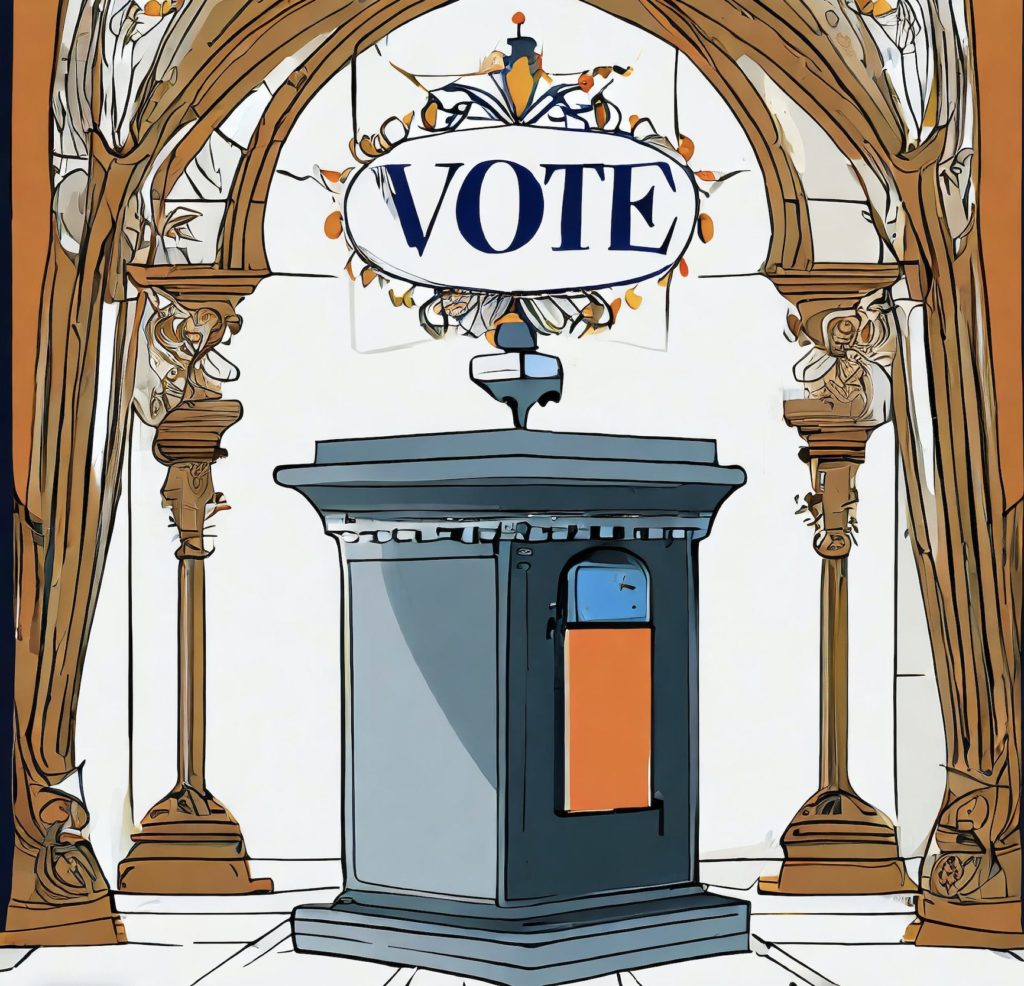By The American Contemporary
The Iowa Caucus, a frequently looked-to indicator of party direction and agenda, was held on January 15th, 2024. While the Democrat party quietly held their caucus through a completely mail-based system of voting (not that a surprise was expected given the incumbent candidate is the sitting president, and often is the individual chosen), all eyes were on the Republican caucus. A contentious pre-primary season lead to this ultimate vote, in which former president Donald Trump was expected to win, and trailing candidates Ron DeSantis, Nikki Haley, and Vivek Ramaswamy fought for the coveted second position. It should be noted that while the Iowa caucus does frequently provide a considerable popularity boost and media attention, it does not always accurately reflect the final candidate choice.
There was a considerable degree of media attention surrounding this event, particularly as it related to candidate hopeful and former South Carolina governor Nikki Haley, who also served as the United Nations ambassador during the Trump administration. Haley had received a considerable number of donations in the 4th quarter of 2023, somewhere around $24 million, over twice that which she acquired in the 3rd quarter. Of course, this pales in comparison to former president Trump, who pulled in upwards of $45 million in the 3rd quarter of 2023, however the surge in donations has given her a potential advantage in advertising and media outreach, which many believed would put her above her closest competitor, Florida governor Ron DeSantis.
Yet many republicans have shown hesitation toward Haley, particularly as it surrounds her opinions on international affairs, especially when it pertains to war. Further, many democratic leaders and wealthy benefactors have outwardly shown support for Haley, even going so far as to donate to her campaign. Jamie Dimon, the chief executive of JPMorgan Chase, urged democrats to support Haley, while Reid Hoffman, co-founder of LinkedIn, has donated $250,000 to her campaign Super PAC despite his democratic allegiance. The Pro-Haley Super PAC has been one of the most active to date, spending over $33 million in total from various funders, many of whom are venture capitalists, tech founders, and wealthy influencers.
The result of the caucus was simultaneously expected and surprising. Trump was the clear and unquestioned winner of the night, taking home 51% of the votes and having the race called for him mere minutes into the night’s tabulations. The surprising occurrence was the emergence of DeSantis in second place, taking home 21% of the votes. Haley, despite her recent media coverage and surge in financing took home bronze for the evening, as well as 19.1% of the total votes. Ramaswamy, after receiving 7.7% of the votes, elected to suspend his campaign and instead endorsed Trump’s candidacy.
As we look ahead to the next several debates, caucuses, and primaries, many media outlets are focused on the question of who will win the primary, though many have already concluded that Trump will become the republican candidate. However, what we are more interested in is the implication of the Iowa caucus on the state of the average Republican voter. Of course, primaries do not draw the same degree of participation as general elections, and we must acknowledge the poor weather drove some voters to stay home. Additionally, primaries generally tend to attract more ardent supporters over moderates and excludes independents. However, the victory of DeSantis over Haley, despite the latter’s increased funding and support through media outlets suggests that Republican voters are becoming increasingly more scrutinous of their candidates, particularly those whose allegiance to the party could be considered questionable. Additionally, outsider candidates, meaning those who have limited government experience, are increasingly showing support. Despite his tenure as president, Trump is still considered an outsider, and in some ways, remains an outsider to the conventions of government. Similarly, despite being new to politics and relatively unknown, Ramaswamy nearly broke double digit support. Of course, it was not enough to compete with other candidates, however when nearly 60% of voters are supporting individuals with limited to no formal political experience, it is undeniable that a solid fraction of the base is seeking those who are not part of the system.
Taking the individual candidates and their beliefs away for a moment and looking just at this concept of outsiders being elected, from a fundamentalist perspective this is somewhat encouraging. The rapid overreach of federal governance in the past 100 years alone have infringed upon the rights of the people while fostering an environment of corruption in the bloated systems that have risen from the wake of power centralization. It is challenging to conceive of members of that system (that is, those who regularly work in and participate in said system) rapidly changing their ways to work towards returning to effective and efficient forms of government. This is even more challenging to consider when so many across the aisle use their platform and access to knowledge to enrich themselves and their allies. Of course, it is not impossible to conceive of a good person working for the government, nor is it impossible for a government worker to be an effective leader. However, the notion that one must have participated in government to be a leader is potentially damaging, and removes some degree of accessibility to elected office from common citizens. The best candidate is the one who puts their own interests aside and is willing to sacrifice their own interests for the benefit of the state and its people.
Of course, there is much to discuss and understand on this issue. Further, there is much more to see over this primary election cycle. Who will be the final candidate, and what will that say of the base that supports them. But as we continue along this path, it is important to remember that the polarizing rhetoric found in most major media outlets are not necessarily accurate reflections of who you are or what you believe. A voter for one candidate over another does not inherently make you racist, ignorant, or lesser than anyone else. It is important to learn and grow from various perspectives, so that even if we disagree, we can find the best course of action for the state and the people.

